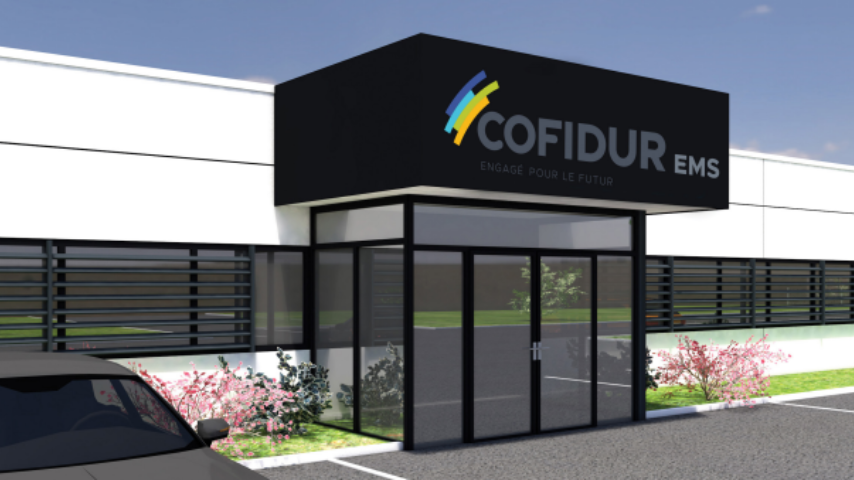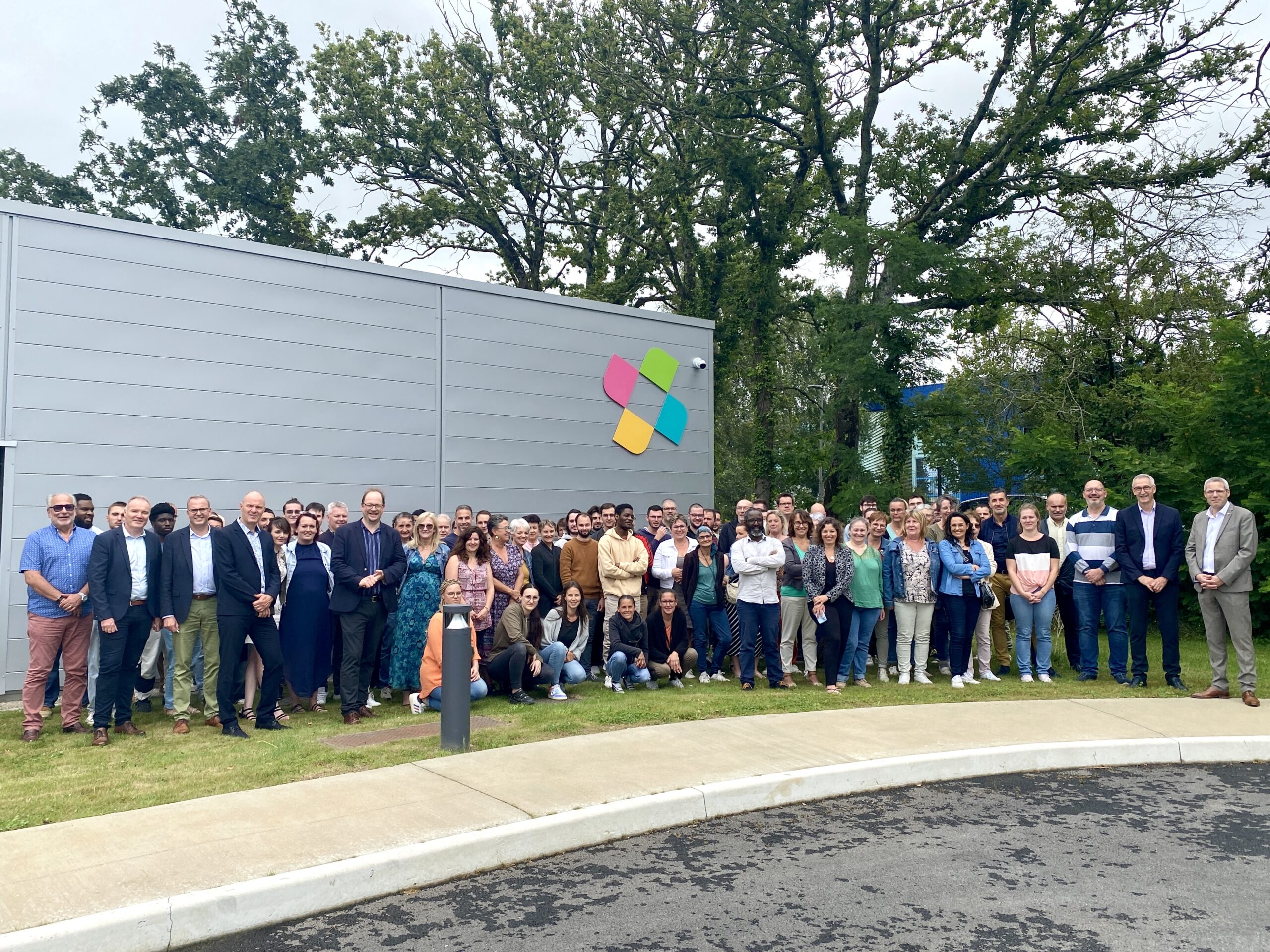A LOOK BACK AT THE TAKEOVER OF SUBCONTRACTOR SEICO BY ITS COLLEAGUE COFIDUR. COFIDUR HAS INHERITED A WEALTH OF EXPERTISE AND NEW MARKETS, WHILE RETAINING THE ‘MADE IN FRANCE’ APPROACH THAT IS SO DEAR TO THE MAYENNE-BASED COMPANY.
Why did you buy Seico in particular?
Laurent Dupoiron: Based on our roadmap (Ambitions 2025 Plan), we identified a large number of certifications and loyal customers as being among our strengths. However, we realised that we lacked the agility to serve new markets. For two years we had been looking to buy a company to take advantage of its organisation and its market. Our choice fell on Seico, whose CEO, Eric Lamboley, is retiring. The final deal was signed on 12 July.
Particularly when it comes to PCBAs and complete products, Seico has strong skills in wiring and integration, serving start-ups as well as larger companies in the project start-up phase who need agility. What's more, the distance between the companies is not too great [Seico is based near Nantes, editor's note], and that encourages close working relationships and professional mobility for the employees.
Do you intend to keep the Joyeuse start-up, which was bought by Seico in 2023?
Laurent Dupoiron: In the past, working with start-ups wasn't one of our objectives, because we weren't structured to welcome them. Working with them requires a lot of support and a specific organisation. Seico generated sales of €16 million in 2023 with around a hundred customers. For our part, we generated €75m with 65 customers, i.e. sales five times higher with half as many customers. This reflects the complementary nature of our skills. This is a new area for us, but we're going to keep Joyeuse and hope to develop it further.
Cofidur also serves new sectors…
Laurent Dupoiron: One or two projects are emerging in the Smart Building, agriculture and energy management and storage sectors. We are also constantly striving to find new markets. We have to keep challenging ourselves to find new outlets.
Do you intend to buy other companies, including foreign ones?
Laurent Dupoiron: The majority of our customers are French. But we also have a few Swiss, German and Belgian customers. And some of our national customers ask us to deliver abroad, and we also deliver to our customers' subsidiaries abroad. We don't rule out anything in terms of external growth in neighbouring countries such as Belgium, the Netherlands, Italy and Portugal.
What sales does Cofidur expect to achieve this year? In view of the Russian-Ukrainian conflict, will you be stepping up your military business ?
Laurent Dupoiron: Our sales are in line with our strategic plan, and we will have to integrate Seico's sales this year, which will bring us close to €100m. Our aerospace and military businesses, which are manufactured exclusively in France, are doing well, while the industrial sector has been slowing down in recent months. Given that Seico only serves the industrial sector, our sales in this sector will logically increase. Overall, Cofidur's first quarter was good, but we saw a slight slowdown in the middle of the year. We hope to see an upturn in the 2nd half, but we remain vigilant and attentive to any information that may come from other quarters, particularly with regard to the European context. In addition, our colleagues and competitors are working all over the world; although the political will to manufacture in France is clear, the overall cost remains essential. We need to remain competitive: national energy and labour costs are not necessarily the most favourable. To overcome this, automation, robotisation and digitisation help us to be more efficient and competitive.
What about the consequences of the shortage of components and the size of stocks?
Laurent Dupoiron: Some customers may decide to redesign their boards, because manufacturers such as Altera and Analog Devices are not always able to supply certain components within reasonable timescales. They also no longer want to be dependent on a single manufacturer. Although the size of component stocks was considerably high in 2022 and 2023, and other components were often unavailable, the situation has improved considerably since then. Prices have not fallen, but a positive trend is emerging. In addition, global production has increased: the situation is stabilising, especially as various slowdowns are taking place and reducing demand.
To limit energy costs, Cofidur was planning to install photovoltaic power plants at its Laval and Périgueux sites…
Laurent Dupoiron: Work on the Périgueux site is almost complete, and work on the Laval site is due to start in the autumn.
How is your Tunisian manufacturing site faring?
Laurent Dupoiron We've been working for 20 years with Cofitel's partner site in Tunis, which is only 2 hours by plane. Its production costs are much lower than in France. The site is doing well, and offers good reception capacity and several types of certification (EN 9001 and EN 9100 aeronautics): this demonstrates its level of competence. We are going to strive to develop this business globally, either by making the most of its resources at lower cost, or by using more efficient solutions and addressing customers directly.
Like your EMS colleagues, is recruitment a tricky business for Cofidur?
Laurent Dupoiron: As with our colleagues, recruiting is certainly not easy, but it's less tricky than you might think.
Gilles Delaunay: It's difficult to recruit fitters, line operators and inspectors, because there are few initial training courses available. The situation is improving slightly for Bac+2 qualifications, thanks in particular to the transformation of the BTS Numériques into BTS CIEL, which enables us to work with the Réaumur high school in Laval and with the Esprit campus in Redon, which is well equipped with production lines and has introduced a Pastel degree. We are working with partners such as IUMM to set up CQPM (Certificats de Qualification Paritaire de la Métallurgie). The situation is much simpler for engineers: according to the director of the Lycée Réaumur, students continue their studies right up to the engineering diploma, and only 30% of them stop their studies at the BTS level. This gives us greater scope for recruitment.
Laurent Dupoiron: We have also developed a policy of work-linked training to a large extent, in virtually all our departments. This enables us to meet the needs of specific assignments, but also to recruit.
Cofidur's repair and renovation business was sold to Cordon Group in 2018. But this business is becoming more popular these days: could it make a comeback?
Laurent Dupoiron: In 2018, the business was very competitive, and required significant development to reach new milestones. We decided to hand over the business to Serge Cordon and his teams. They have developed a large number of IT tools that enable their customers (both large principals and private individuals) to obtain traceability and progress on repairs. We don't restrict ourselves in any way, but this is not part of our Ambitions 2025 strategic plan. We provide after-sales service for the products we manufacture. At the request of some of our customers, we also recondition old equipment, reconfiguring the mechanical envelope and recovering the PCBAs to transform them into new products. However, as an electronics subcontractor, we are not structured to deal with the general public, but only with B-to-B customers.
Source: ElectroniqueS



